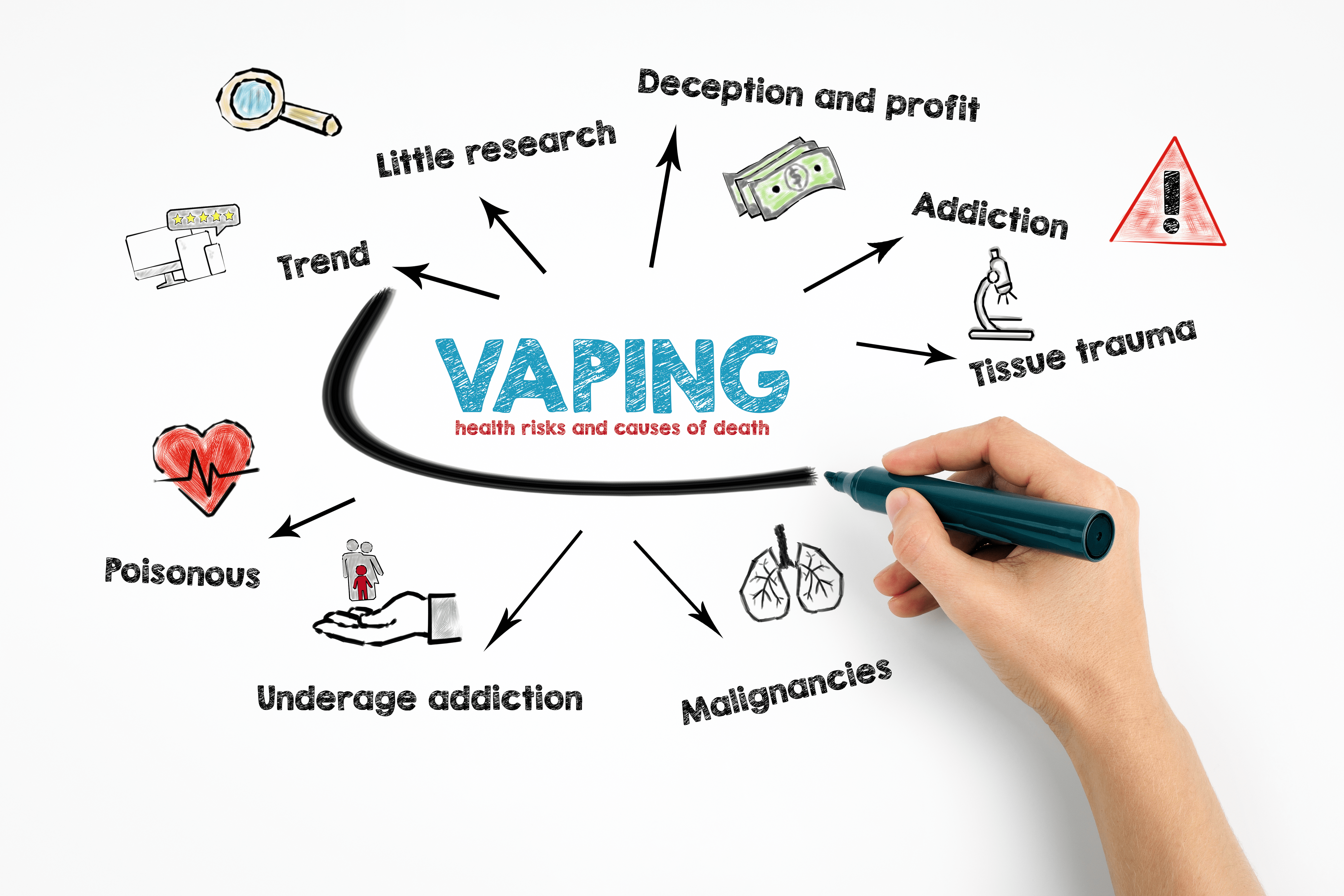While often perceived as safer than traditional cigarettes, electronic cigarettes pose significant health risks that extend beyond nicotine addiction.
Respiratory System Impact
Vaping introduces ultrafine particles, flavoring chemicals, and heavy metals deep into the lungs. Documented effects include:

- EVALI (E-cigarette or Vaping product use-Associated Lung Injury): Severe respiratory illness linked primarily to vitamin E acetate in THC-containing products, causing permanent lung damage.
- Chronic Inflammation: Persistent airway irritation, increased mucus production, and compromised lung function, elevating asthma risk and exacerbating existing conditions.
- Impaired Ciliary Function: Reduced ability of the lung’s natural defense system to clear pathogens and toxins.
Cardiovascular Consequences
Nicotine and other constituents contribute to heart health deterioration:
- Increased Heart Rate & Blood Pressure: Nicotine stimulates adrenaline release, straining the cardiovascular system acutely.
- Endothelial Dysfunction: Vapor chemicals damage blood vessel linings, impairing dilation and increasing atherosclerosis (plaque buildup) risk.
- Elevated Clotting Risk: Associated with increased platelet activation and potential for thrombus formation.
Chemical Exposure & Toxicity
E-liquids contain harmful substances beyond nicotine:
- Formaldehyde, Acetaldehyde, Acrolein: Carcinogenic carbonyls formed when e-liquid overheats (“dry puff” phenomenon).
- Diacetyl & Other Flavorings: Linked to bronchiolitis obliterans (“popcorn lung”) when inhaled, causing irreversible airway scarring.
- Metal Nanoparticles: Heating elements (nickel, chromium, lead) release particles into aerosol, posing risks to lungs and systemic circulation.
Brain Development & Addiction
Nicotine exposure during adolescence is particularly harmful:
- Impaired Brain Development: Nicotine disrupts synapse formation in developing prefrontal cortex, impacting attention, learning, and impulse control.
- Increased Addiction Susceptibility: Alters brain reward pathways, heightening vulnerability to substance use disorders and nicotine dependence often exceeding traditional cigarettes.
Immune System Suppression
Studies indicate vaping suppresses key immune functions:
- Reduced Antibody Production: Impaired immune response to pathogens like influenza virus.
- Altered Cytokine Levels: Vaping modifies inflammatory signaling molecules, potentially leading to chronic inflammation and reduced infection defense.
Evidence increasingly demonstrates that electronic cigarettes are not harmless. They expose users to complex chemical mixtures with documented toxic effects across multiple organ systems, posing significant hidden health threats.










